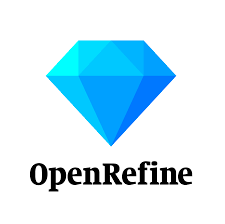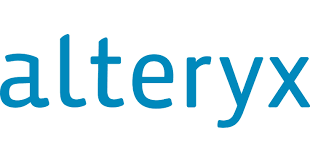Any data-driven solution starts with high-quality data. Teams are more pressured to improve and uphold good data quality as businesses see the benefits of data and data management. It is becoming more difficult for teams to assess and enhance data quality regularly due to the expanding number of data sources and rising complexity.
There are several benefits of using data quality technologies. To begin with, data quality is more accessible to assess and more effectively improved. Having the appropriate degree of observability makes data administration simpler.
We will explore the best data quality tools in this post ranging from open-source and accessible options to feature-rich corporate software suites.
Table of Contents
What is a data quality tool?
To enable efficient information governance throughout operational business processes and decision-making, data quality tools are the procedures and technology for locating, analyzing, and fixing errors in data.
Many essential tasks, like profiling, parsing, standardizing, cleaning, matching, enrichment, and monitoring, are included in the offered packaged tools.
Data can be made more dependable and easier to use with data quality tools. Poor decision-making lost opportunities, and decreased earnings are all encouraged by inaccurate data. Data quality is now a crucial concern as cloud usage grows and becomes more sophisticated. When appropriately applied, data quality techniques address the root causes of these challenges.
What are the categories of data quality tools?
According to their capabilities and standards, here are different categories of data quality tools:
1. Data Profiling
Tools provide statistical summaries, identify trends and anomalies, and offer insights into data types, distributions, and completeness while analyzing its content, structure, and quality.
2. Data purification
Data mistakes, inconsistencies, and redundancies are found and fixed via tools. They modify data, eliminate redundancies, correct misspellings, validate against rules, and standardize formats.
3. Data Validation
Tools expose non-compliant data using preset rules to examine data for accuracy, integrity, and compliance.
4. Data Deduplication and matching
Tools help to ensure a single, accurate view of the data by identifying and consolidating duplicate records.
5. Data normalization
Tools provide consistency by standardizing data formats and values. By using predetermined guidelines, they convert data into a standard format and eliminate variances in acronyms and naming conventions.
6. Data Enrichment
Tools augment datasets with extra context and insights by integrating external data sources (geolocation, demographics, etc.).
7. Data warnings and monitoring
Tools facilitate threshold setting, alert generation, and automated data quality monitoring for problem identification and proactive problem-solving.
8. Dashboards and data reporting
High-quality measurements, reports, and visualizations are produced via tools. To provide a thorough understanding of data quality, progress tracking, and improvement insights, they provide interactive dashboards and configurable reports.
9. Assistance with data governance
To ensure data integrity, compliance, and accountability, tools help with policy creation, standardization, metadata management, and stakeholder communication.
10 best data quality tools
1. Talend Data

Talend Data is an all-inclusive platform for data integration that facilitates the connection, management, and transformation of data for enterprises. Regardless of where the data is stored, it offers a unified picture of everything, making extracting insights and guiding business choices simple.
Users of Talend data quality tools can quickly discover issues and spot data irregularities using statistics and a graphical depiction. Additionally, it offers an array of tools for data standardization, data profiling, and data cleansing.
The data integrity tool provides a graphical user interface and drill-down features to display details on data integrity. Users can evaluate data quality against custom-created thresholds by comparing performance to internal or external measures and standards.
Key Features of Talend Data
- Ability to connect with almost any kind of data source, such as cloud, big data, and on-premises systems.
- Includes several features, including data cleansing, data validation, and data profiling, to guarantee the quality of your data.
- We can assist you in managing your data by giving you a single perspective of all your data assets. It also has tools for controlling data security, lineage, and access.
- Your data can be transformed in several ways, such as enrichment, mapping, and cleansing.
2. Ataccama One
An extensive free-to-use data management platform, Ataccama ONE integrates management, quality, and governance features into a single AI-powered system. This solution enables data teams to accelerate their decision-making processes without sacrificing data security, trust, or governance thanks to support for cloud and hybrid environments.
Increase productivity and secure business outcomes driven by data by integrating Ataccama ONE to help you optimize data operations, improve data quality, and encourage adherence to data governance rules.
The technology’s simple design helps data professionals and corporate leaders understand the present state of the information ecosystem before validating and updating data repositories.
Key Features of Ataccama One
- It enables business users to monitor data quality measurements and conduct reports on data profiling, among other fundamental data quality tasks.
- It uses AI to find complicated data quality problems and automate data quality activities.
- Easily deployable and scalable due to its availability as a cloud-based service.
- It provides an open API that you may use to combine it with different programs and systems.
3. IBM InfoSphere
The IBM data quality tools are available both on-premise and in the cloud, and it provides a comprehensive yet all-encompassing approach to data management and cleansing. The main objective is to establish precise and consistent impressions of customers, vendors, venues, and products.
InfoSphere QualityStage is designed for use in the following domains: corporate intelligence, big data, application migration, data warehousing, and master data management.
Key Features of IBM InfoSphere
- Information Analyzer allows users to profile data to comprehend its quality, content, and structure from various sources. Finding trends, irregularities, and abnormalities in the data is made more accessible with profiling.
- The application makes metadata management easier by enabling users to record and capture details about the relationships, structures, and data sources. This metadata aids in building a thorough knowledge of the data environment.
- Information Analyzer evaluates data quality using pre-established quality measures and business standards. It produces reports and visuals that draw attention to problems and patterns in data quality.
4. OpenRefine

Maintaining clean, well-formatted data is one of the most important aspects of data quality. Using datasets from several sources, OpenRefine, formerly Google Refine, is an open-source data quality tool that can clean and transform data between different formats.
Researchers, data analysts, and anyone working with heterogeneous and unstructured datasets are big fans of OpenRefine. Its many capabilities and easy-to-use interface make it a valuable tool for data processing and cleansing jobs. Users can gain from a cooperative community and continuous development because it is open-source.
Key Features of OpenRefine
- OpenRefine is particularly good at cleaning and transforming datasets with errors, inconsistencies, and irregularities. Typographical flaws, missing numbers, and formatting mistakes are among the problems that users may quickly spot and fix.
- Users of the tool can explore and filter data based on several facets or attributes thanks to the faceted browsing feature. This facilitates finding patterns, anomalies, and correlations within the dataset.
- OpenRefine has rudimentary data profiling features that let users look at data distributions, patterns, and summary statistics. This aids in improving one’s comprehension of the dataset.
5. SAP
Systems Applications and Products in Data Processing is what SAP stands for. It is an integrated suite of programs designed to assist companies in managing their back-end operations, including supply chain management, finance, and human resources.
One of the world’s most widely used enterprise resource planning (ERP) systems, SAP has more than 440,000 users in more than 180 countries.
Key Features of SAP
- It includes several critical modules covering the fundamental business operations of a firm, such as financial accounting (FI), controlling (CO), human resources (HR), and sales and distribution (SD).
- SAP provides modules for specific business functions, such as CRM, EAM, and PLM.
- Sensitive information is protected on the secure SAP platform. Access control, data encryption, and user authentication are some of its security features.
- SAP can be tailored to each company’s unique requirements. Several ways to accomplish this customization include function modules, user exits, and ABAP programming.
- Businesses can get assistance from SAP’s sizable and knowledgeable support staff with setup, instruction, and troubleshooting.
6. Oracle
A component of the Oracle Data Integrator (ODI) suite, Oracle Data Quality Management (DQM) is intended to handle issues with data quality inside an enterprise. For profiling, cleaning, standardizing, and monitoring data quality, Oracle DQM offers a variety of functions and functionalities.
A practical option that can provide you with the management and prioritization you require while assessing data is Oracle’s Enterprise Data Quality (EDQ) platform. To meet even the highest requirements, it provides a comprehensive framework for maintaining data quality.
Key Features of Oracle
- Data profiling is a feature of Oracle DQM that helps examine and comprehend data properties. Patterns, anomalies, and quality problems in datasets can be found using profiling.
- The instrument facilitates data standardization by imposing uniform forms, structures, and values. This makes it easier to ensure that data complies with established guidelines and works with systems further down the line.
- Oracle DQM has data cleansing capabilities to find and fix mistakes, discrepancies, and inaccuracies in the data. This could entail fixing typos, dealing with missing numbers, and eliminating duplication.
7. SAS

An organization’s internal data quality can be enhanced with the help of SAS Data Quality, a part of the SAS Data Management system. A wide range of tools and features are available with SAS Data Quality for data profiling, cleaning, standardization, and monitoring.
SAS Data Quality is appropriate for businesses that need an all-inclusive, enterprise-level solution to manage and enhance the quality of their data. It is frequently utilized in sectors where data quality and compliance are crucial, such as finance, healthcare, and government.
Key Features of SAS
- SAS Data Quality allows users to create and implement policies and guidelines for data quality. This guarantees that the data satisfies specific regulatory criteria and business requirements. The program facilitates the development of reusable rules for quality assurance and data validation.
- SAS Data Quality facilitates long-term, ongoing data quality monitoring. Organizations may spot patterns and take proactive measures to resolve problems by using the reporting and visualization tools it offers to monitor data quality indicators.
- The larger SAS Data Management platform easily interacts with SAS Data Quality. Users can now include data quality procedures in their workflows for data integration, transformation, and governance.
8. Precisely
With precise and consistent data management, Precisely is a potent instrument for data quality that guarantees data integrity. Additionally, this tool offers a variety of data quality solutions, such as Trillium Cloud, Trillium data quality, and Trillium for extensive data.
These solutions give users comprehensive insights into their data, enabling them to make timely and well-informed business decisions. Precisely users can depend confidently on high-quality data to enhance decision-making and operational efficiency.
Key Features of Precisely
- It provides an open API that you may use to combine it with different programs and systems.
- Using the impact analysis tool, you may prioritize your repair efforts to understand better how data quality issues affect your business processes.
- Offers an extensive collection of data quality metrics so you may monitor the development of your data quality projects and pinpoint areas needing improvement.
- You can quickly keep an eye on the condition of your data thanks to the data quality dashboard, which provides a consolidated view of your data quality parameters.
9. Informatica
As part of the more extensive Informatica Intelligent Data Platform, Informatica Data Quality (IDQ) is intended to help organizations deal with data quality issues by offering a range of tools and capabilities for data profiling, cleansing, standardization, and monitoring.
Informatica Data Quality is appropriate for those who need a comprehensive and scalable solution for managing and enhancing the quality of their data, and it is frequently used in various industries where precise and high-quality data is essential for successful business operations.
Key Features of Informatica
- Data cleansing tools in Informatica Data Quality help find and fix data mistakes, inconsistencies, and inaccuracies. Adding more data from outside sources also facilitates data enrichment.
- The program offers extensive data matching and deduplication features to find and combine duplicate records in a dataset. As a result, a unified, accurate, and consolidated view of the data is guaranteed.
- Specific tools for address validation are included in Informatica Data Quality to guarantee that address data is accurate and conforms to predetermined requirements. This is especially beneficial for businesses handling location and customer data.
10. Alteryx

With the help of the data analytics and preparation platform Alteryx, users may combine, filter, and analyze data from various sources without knowing how to write much code. It is intended to facilitate self-service data analytics for a broad spectrum of users, including data scientists, business analysts, and analysts of complicated data pipelines.
Alteryx is renowned for its intuitive user interface and capacity to optimize end-to-end analytics workflows. It is a flexible tool for businesses looking for an all-inclusive solution for data analytics and preparation because it is frequently used for jobs, including data preparation, blending, and advanced analytics.
Key Features of Alteryx
- With Alteryx, users can combine data from several sources—including databases, spreadsheets, and cloud platforms—to create a cohesive dataset. It facilitates data integration without requiring a high level of coding knowledge.
- A visual drag-and-drop interface allows users to carry out actions related to data transformation and purification. Alteryx offers many pre-made tools for activities, including filtering, aggregating, parsing, and data purification.
- Alteryx facilitates the manipulation of geographic data by offering spatial and location analytics features. This is helpful for jobs like mapping, geocoding, and geographical analysis.
Data Quality Tools Vs Data Management Tools
Developers specially design data quality tools to ensure the dependability, consistency, and accuracy of data. They deal with problems in datasets, such as mistakes, duplications, missing numbers, and inconsistencies.
Features for data profiling, which entails examining and comprehending the properties of data, are frequently included in data quality tools. They also can cleanse data, which involves finding and fixing errors and inconsistencies.
On the other hand, a more comprehensive range of features, such as data integration, data governance, data storage, and overall data lifecycle management, are included in data management solutions and data quality.
Integrating data from several sources, transforming it into the required format, and loading it into target systems are the main goals of data management solutions, such as ETL (Extract, Transform, Load) tools. They aid with the transfer and transformation of data throughout the company.
Frequently Asked Questions
Why is the quality of the data important?
Making educated business decisions, guaranteeing regulatory compliance, and upholding stakeholder confidence all depend on high-quality data. Data quality can result in accurate insights, operational inefficiencies, and monetary losses.
Can data quality tools handle massive data?
Indeed, many technologies for data quality are made to work in significant data situations. To guarantee data quality in enormous datasets, they are scalable and capable of processing and analyzing vast volumes of data.
Are data quality tools integrated with tools for data management?
Indeed, data integration, master data management (MDM), and business intelligence tools are just a few examples of additional data management technologies that frequently interface with data quality solutions. Integration makes it possible to handle data more thoroughly.
Conclusion
Even with highly competent data quality teams, problems with data quality might still arise if they are not equipped with the appropriate tools. This self-service, all-in-one platform for data quality will help you make better business decisions and strategies by profiling data, cleaning data, removing duplicates, and bringing in correct, comprehensive, and trustworthy data.
As a result, decide which data quality tool best suits your needs regarding functionality and make your choice today.
References
Maddevs.io
simplilearn.com
Recommendations
Best Data Masking Tools For Security
13 Recommended Best Data Management Tools
10 Best Backup Software To Secure Data